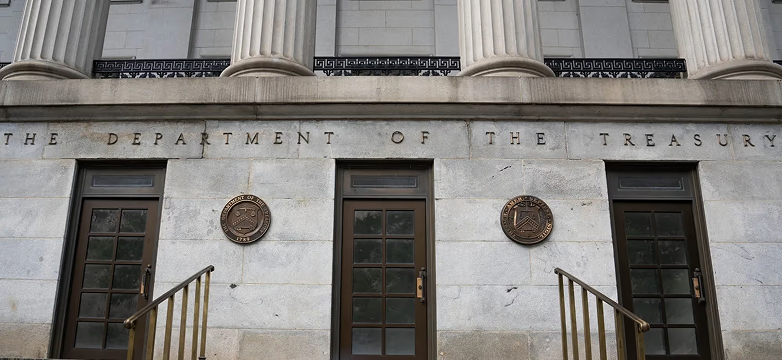Key takeaways from Crux white paper on risk mitigation and due diligence in tax credit transfers

Today, we published a white paper detailing the due diligence process for tax credit transactions. Crux surveyed nearly three dozen of the most experienced legal, tax, and financial advisors and insurers, with experience across hundreds of tax credit transactions. Collectively, the firms interviewed have represented parties in the overwhelming majority of transactions in the emerging transferable tax credit market. The result is a rigorous analysis demonstrating the importance of the due diligence process in driving an efficient transaction, the key risks, the degree of alignment around due diligence items, and deal terms.
Watch Crux discuss findings from the white paper with Heatmap News.
In the early days of the market for over-the-counter derivatives, every transaction had to be carefully and specifically negotiated. By the mid-1980s, investors coalesced on the “International Swaps & Derivatives Association (ISDA) Master Agreement” which standardized the template to document trades and specified the variables that could be changed. Standardization allowed trades to clear more efficiently and enabled the growth of the derivatives market. Crux’s detailed analysis of market-standard due diligence process, standards, and transaction risks is an important step forward in the standardization of tax credit transactions.
Key findings from the white paper:
Transparency and alignment on due diligence drives successful transactions: Early alignment between buyer and seller in the due diligence process is crucial for ensuring successful and efficient transactions. According to the survey, nearly 40% of advisors found that due diligence has been a cause of transaction delays. Over 70% of advisors indicated that buyer education is the most important driver of a smooth transaction, while 66% emphasized the importance of seller preparation for due diligence.
Key transaction risks are increasingly well understood: The primary risks in tax credit transactions include recapture, eligibility and qualification issues, and basis/excessive credit transfer risks. Across more than 500 transactions, advisors report that recapture has occurred in about 0.5% of historical tax credit and tax equity deals; approximately 80% of advisors that responded to our survey indicated they had never seen a recapture event, highlighting its rarity. Most observed instances of recapture were partial events, related to weather damage. Still, these risks remain important considerations for buyers who need to assess and mitigate them appropriately. Crux’s 2023 Market Intelligence Report observed that buyers typically mitigate recapture risks on ITC transactions with third party insurance (75% of deals) and/or with indemnification by the seller (20% of deals).
Growing consensus among advisors regarding risk mitigation: There is increasing cohesion among law firms, tax advisors, financial institutions, and insurance brokers regarding the essential due diligence items and most commonly negotiated deal terms in tax credit transactions.
But different advisors play different roles: The due diligence process differs between legal/tax advisors, financial advisors, and insurers according to their roles and responsibilities. Legal advisors tend to do the most primary analysis and avoid relying on other law firms legal memoranda or opinions (50% indicate that they don’t depend on opinions provided by seller counsel), while tax advisors and insurers do tend to review these items. Tax advisors are far more likely (80%) to conduct a five-factor analysis to determine whether a project has been placed-in-service, while other advisors are more likely to rely on a Permit-to-Operate letter from a utility.
Development of a Due Diligence Checklist: Based on the survey findings, Crux has developed a market-validated due diligence checklist by transaction type — covering investment tax credits (ITC), non-manufacturing production tax credits (PTC), and advanced manufacturing PTCs (§45X) — to aid in the preparation for and execution of tax credit transactions. All Crux platform users have access to this diligence checklist, which is continually updated as market standards evolve. This checklist streamlines the deal process, ensuring that all necessary steps are taken to identify and mitigate risks effectively. If likely diligence items are well-understood by sellers and buyers at the outset of the process, there is less room for dissonance later in the process.
Crux’s research underscores the critical role of due diligence in tax credit transactions, highlighting the need for transparency, alignment, and standardized practices to facilitate market growth and efficiency. The introduction of transferability has simplified the transaction process, but intentional preparation and understanding of risks remain essential for successful transactions.
Download the white paper:
Additional insights & news

April 4, 2025
This guide examines the differences between tax equity and transferable clean energy tax credits, including the rise of hybrid tax equity structures that utilize elements from both financing structures.
Read More
March 31, 2025
Advanced manufacturing tax credits are among the most in-demand in the tax credit market. Learn what you need to know about these popular credits in this guide.
Read More
March 26, 2025
Beginning in 2025, clean energy projects have access to the new §48E clean electricity investment tax credit and §45Y clean electricity production tax credit. Going forward, developers of new projects need to understand the details of the new tax credits, and tax credit buyers should understand the different qualification parameters under the tech-neutral tax credit regulations.
Read More





.jpg)





























































